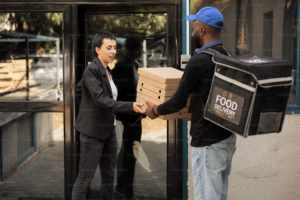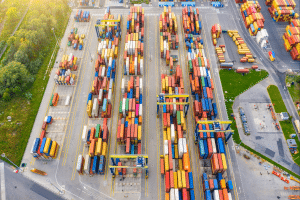Secure World Foundation is a US-based non-profit geared towards long-term sustainable use of space. Its key focus areas include projects on space security, sustainability, and space traffic management.
“All the companies that use satellite data, insights, and analytics, along with their customers, should be aware of space sustainability as it endangers the ability to fetch data. Our long-term vision is a secure, sustainable, peaceful space that benefits humanity”, says Dr. Brian Weeden, Director, Program Planning, Secure World Foundation, in an exclusive interview.
Space is often referred to as mankind’s common province, but there’s a lot of weaponization that is taking place, such as ASAT tests and space forces being mustered. Amid this, what do you think is the way forward to ensure orbital sustainability?
That’s the big question that we focus on all the time. Even in normal day-to-day operations, there are a lot of challenges. For instance, while launching a rocket, it’s critical to ensure that it won’t land around cities or densely populated areas.
Similarly, while operating a satellite it needs to be taken care that it doesn’t collide with anything in the orbit. There’s a need to be cautious of space weather as well, which can impact satellites. This is something that a lot of people don’t realize.
Space is going to play a big part in all future wars. Satellites are used for communications, imagery, intelligence, and reconnaissance, and people are attacking those satellites just like aircraft or tanks.
Then towards the end of the mission life, it is essential to properly dispose of satellites so that they don’t stay around in orbit for the next 20 years.
There’s a set of best practices around how to do that. Next arise the security issues, as we are seeing in the Ukraine war.
A lot of these attacks are done using electronic warfare. There could be cyber-attacks as well as physical attacks, which bring a new set of challenges.
To best tackle these, there are ongoing discussions at the United Nations on threats to space, ways to combat them, and how to put in place legally binding norms and treaties.
Do you think there is a need to institutionalize the Artemis Accords and make them legally binding?
It’s interesting because the Artemis Accords are meant to apply the existing international treaties, such as the Outer Space Treaty (1967). There are a few other agreements that lay down broad principles for conducting space activities peacefully.
The accords are in line with those broader principles that are in the treaties. They also emphasize non-appropriation, which means that you can’t put up a flag and claim some territory in space. But if you extract resources, like water from the moon, that can be used.
The Artemis Accords also focus on de-conflicting operations. For example, if there are two players operating nearby on the moon, then they should coordinate with each other.
Since the last year, there has been a discussion about anti-testing satellites. The United States and a few other countries have agreed to not test anti-satellite weapons. Ongoing discussions on this may soon take the form of a binding treaty akin to the US and former Soviet Union taking the lead in banning nuclear weapon tests.
With just four countries possessing ASAT capability, do you think there’s a need for something similar to the CTBT (Comprehensive Test Ban Treaty) of space?
The question is do we start with just the countries that have conducted the tests, or do we include a broad set of countries?
Another thing that needs to be sorted is verification. CTBT and others have verification protocol regimes for countries to monitor what’s going on, and get to know when somebody breaks the treaty. It’s possible to do it for ASATs, because the moment someone destroys a satellite, it’s quite visible.
However, there’s still a need to work towards what a real verification regime would look like. At the moment we are researching what could be the way forward – do we need formal agreements such as the CTBT or can countries individually do it? This is the big question that needs to be answered.
Do you think there’s a need for a call to action to increase awareness about space sustainability?
There’s a growing awareness already. In 2010, the United Nations Committee on Peace About Space began working on long-term sustainability.
In 2019, its working group came up with a set of guidelines for long-term sustainability that nearly a hundred countries agreed to. So awareness is there, however, there’s a need to enhance it among end-users of space – people who use satellite data such as the geo-intelligence community.
All the companies that use satellite data and insights, and their customers, should be aware of space sustainability as it endangers the ability to fetch space data.
Earlier this year, the African Union established its space agency, and UAE, another late entrant, is also among the ambitious spacing countries now. In this context, how do you see the geopolitics of space shaping up over the next decade?
A lot of countries are getting involved in space. Over the past ten years, the membership in the aforementioned UN committee has gone from 70 to more than 100. Though not all of them operate satellites, they rely on space data. This is a big motivation for them.
A lot of nations such as Rwanda, the United Arab Emirates, and Mexico that were not perceived as traditional space players are a part of the Artemis Accords.
However, the multiplicity of space players also adds to the complexity because different countries have varied motives for space exploration. Some may want to focus on national security, while others or economic benefits, or enhancing national prestige, or a mix of all. This makes it a little harder to secure agreement on many things between different space players.
Due to low launch prices and liberalized entry barriers to what was exclusive state turf till the end of the Cold War, and even until the mid-2000s, on one hand, we see fledgling startups, and on the other, more and more nations setting up space agencies or launching satellites. How do you view this multi-layered mosaic in terms of growth and opportunities?
Commercial development of space is generating a lot of new applications, which is providing new opportunities and benefits.
Seven years ago, as part of a project, we created a Handbook for New Actors in Space, which aimed to welcome newer companies and countries into space and provide them with an overview of the international treaties, principles, laws, policies, sustainable operations, etc that they need to know so that they don’t repeat previous mistakes made by others.
The growing commercialization of space is helping democratize the capabilities. It’s now much easier for anyone in the world, be it in India or elsewhere, to build and launch a satellite and get data.
Also Read: Making Citizens Active Space Stakeholders









